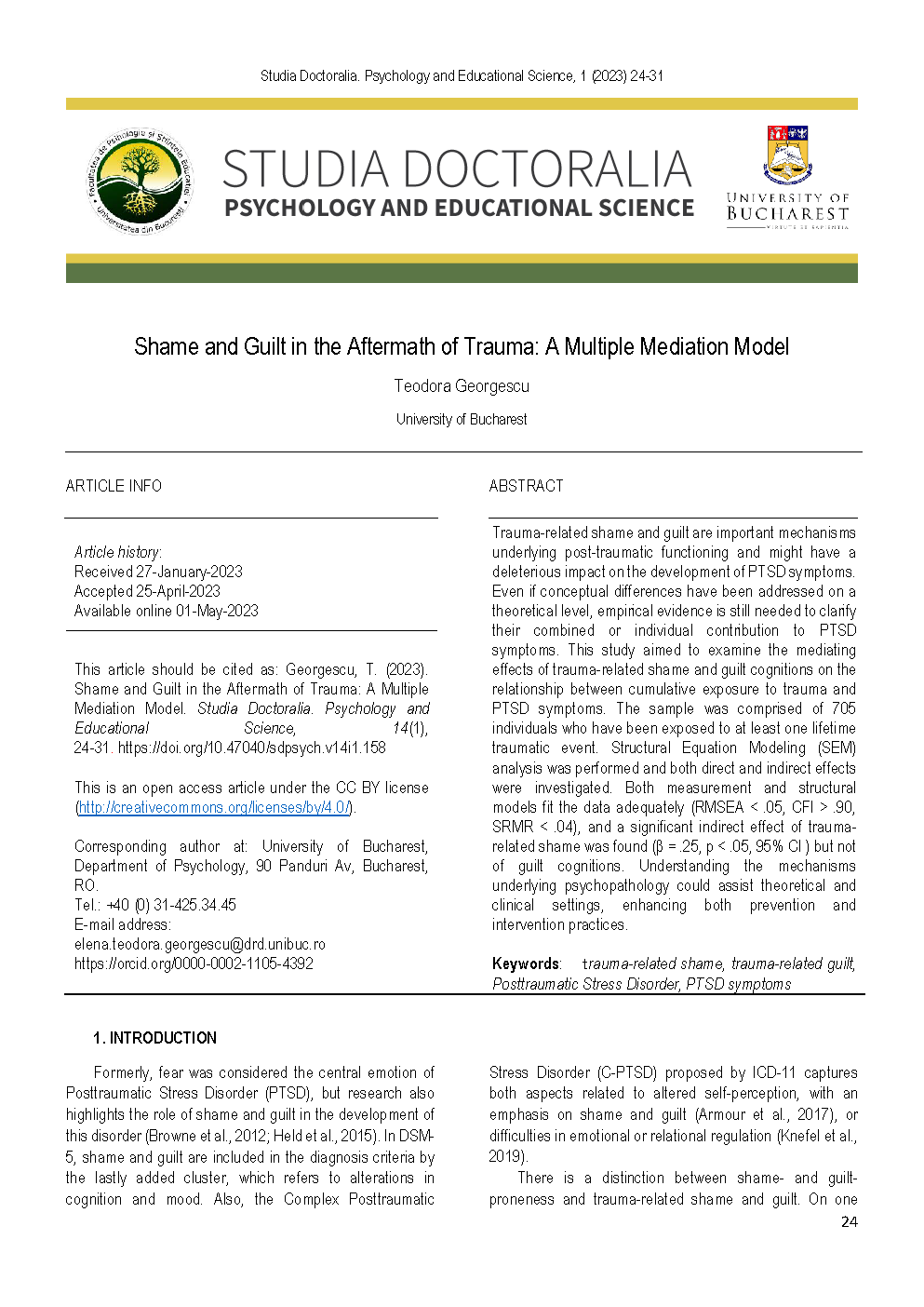Shame and Guilt in the Aftermath of Trauma: A Multiple Mediation Model
DOI:
https://doi.org/10.47040/SDPSYCH.V14I1.158Keywords:
trauma-related shame, trauma-related guilt, Posttraumatic Stress Disorder, PTSD symptomsAbstract
Trauma-related shame and guilt are important mechanisms underlying post-traumatic functioning and might have a deleterious impact on the development of PTSD symptoms. Even if conceptual differences have been addressed on a theoretical level, empirical evidence is still needed to clarify their combined or individual contribution to PTSD symptoms. This study aimed to examine the mediating effects of trauma-related shame and guilt cognitions on the relationship between cumulative exposure to trauma and
PTSD symptoms. The sample was comprised of 705 individuals who have been exposed to at least one lifetime traumatic event. Structural Equation Modeling (SEM) analysis was performed and both direct and indirect effects were investigated. Both measurement and structural models fit the data adequately (RMSEA < .05, CFI > .90, SRMR < .04), and a significant indirect effect of traumarelated
shame was found (β = .25, p < .05, 95% CI ) but not of guilt cognitions. Understanding the mechanisms underlying psychopathology could assist theoretical and clinical settings, enhancing both prevention and intervention practices.




